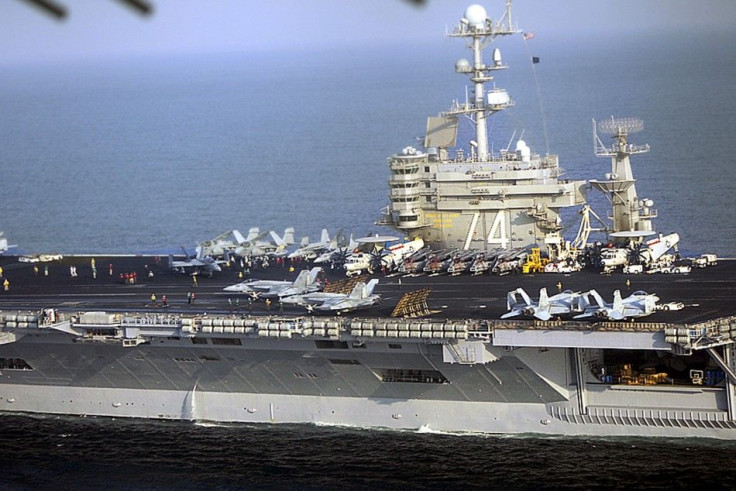Strait of Hormuz, Iran Threat Looms Large Into 2012 for U.S., World

Many experts including the U.S. government hint that Iran's threat of closing the Strait of Hormuz is just a bluff.
They'd rather be an annoying gnat that pick a big fight -- war.
But as America begins to put its military pieces back together again after the end to a nine-year campaign in Iraq threats from Iran that it may close the Strait of Hormuz, the most vital corridor for oil tanker traffic in the world, the reality is that another conflict may be looming with Iran.
Something that's become evident this year is that Iran's behavior is becoming erratic and less predictable than it once was. And thus the threat involving the Strait of Hormuz, which many are labeling a bluff, may in fact be more than that. Consider only that earlier this year officials cracked a plot to assassinate the Saudi ambassador on U.S. soil.
Iran's Behavior Less Predictable
Iran denied the claim, and the American government was attacked by many for lobbing a false accusation. Many experts said simply that such a plan was not in line with typical behavior of Iran. And that may be the greatest concern involving the Strait of Hormuz threat -- a change in the once predictable behavior of Iran. The U.S. government was adamant, for instance, that the foiled plot to assassinate the Saudi ambassador was real.
U.S. Secretary of State Hilary Clinton described the plot a reckless act.
Now, we have the threat of another reckless act, Iran's dangling plant to close the Strait of Hormuz. Some 15 million barrels of oil a day passed through the 34-mile wide Strait in 2009 -- roughly one third of all global oil tanker traffic. Experts say if Iran in fact successfully closed the Strait the price of oil would likely shoot up $40 a barrel or more from current prices hovering near $100 a barrel already.
Obama Considering Tougher Sanctions
U.S. officials and other global experts suggest that Iran's threat is merely a ploy to intimidate, in light of President Barack Obama's consideration of tough new sanctions against Iran targeting the nation's lucrative oil exports. The idea in the White House is to force Iran to ease off its nuclear program.
Iran claims its uranium enriching activities are for peaceful purposes, writes CNN, while many Western governments suspect they are intended to produce a weapon.
That's one thing most experts seem to agree on: Iran wants to build a weapon, not peace.
The question is only how far Iran will go in protecting that endeavor. Most every expert agrees that Iran prefers to be that annoying gnat rather than engage in a full-blown war.
If they are going to do something to us, it makes a lot more sense to raise the level of tension without getting into a fight, said Anthony Cordesman, a national security analyst at the Center for Strategic and International Studies, according to USA Today.
Iran undoubtedly has playground bully tendencies -- a habit of landing annoying picks and small punches before running away in the uproar and acting as if it didn't do anything. It's also true that Iran has threatened to close the Strait of Hormuz before. The country's leadership understands how heavily the world relies on the passage. That's why the passage way is the perfect conduit for picking a global fight.
Iran Also Depends on the Strait
But Iran relies upon the Strait of Hormuz for delivery of oil as well. If the country successfully sealed the Strait with action from its Navy the country would suffer along with the rest of the oil dependent world. The Strait, for instance, is a passage for oil to China, and China is a major oil customer of Iran's.
They use the strait as much as anyone else, said Jonathan Rue, a senior research analyst at the Institute for the Study of War, according to USA Today.
Iran isn't necessarily thinking or acting rationally these days, however. Should the country follow through on its threat, the U.S. has said it has a plan to fight back. Undoubtedly that means military intervention, perhaps a strike back from the U.S. Navy against Iran's Navy trying to block the Strait.
Any attempt to close the Strait of Hormuz will not be tolerated, said Pentagon spokesman George Little in a statement his week. This is an economic lifeline for countries in the Gulf region, to include Iran.
It is becoming clearer, then, that if Iran isn't bluffing and the country goes through with an effort to close the Strait of Hormuz, a major military confrontation flriting with war could be in store for 2012.
© Copyright IBTimes 2025. All rights reserved.



















